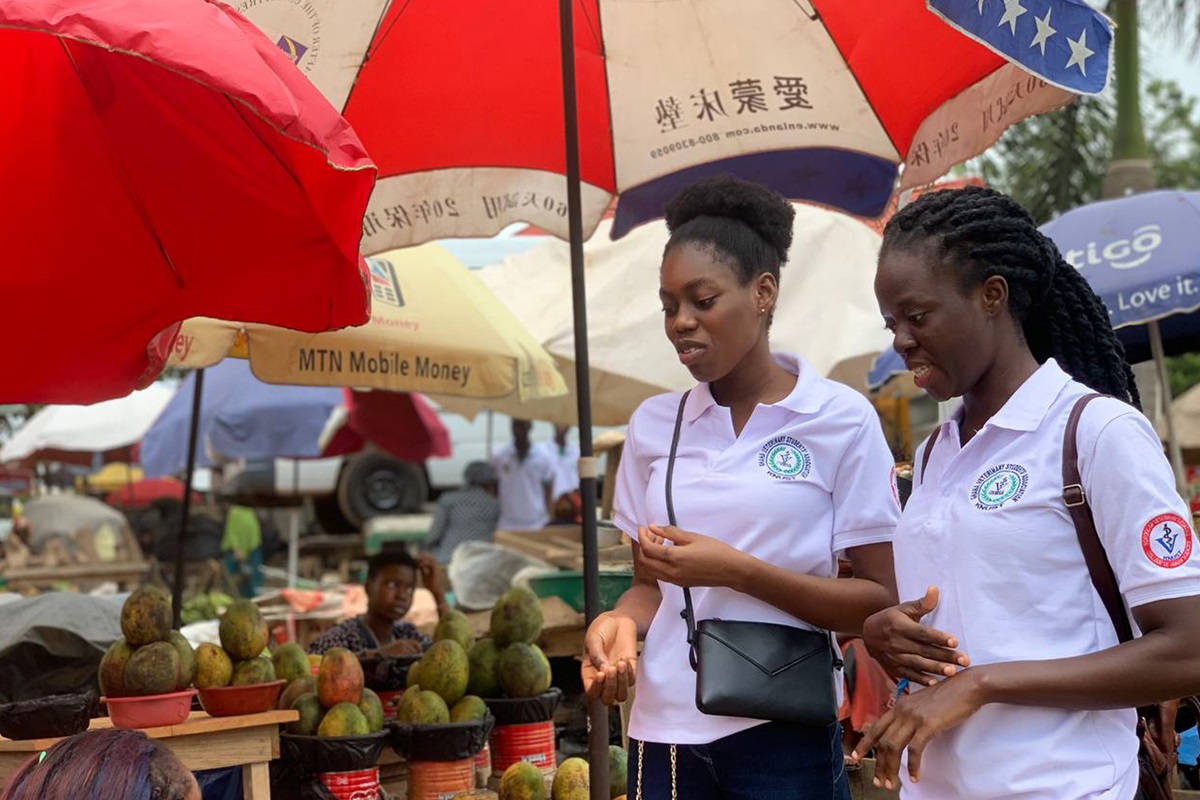- September 28, 2022
- No Comment
- 6 minutes read
Youth Engagement for rabies elimination in Ghana – World Health Organization

Rabies, a zoonotic disease, is endemic in Ghana and the Ashanti region, in the south of the country is one of the worst affected. In rural areas, rabies cases often go unreported, as awareness of the disease is low and surveillance is sub-optimal. To reach the global goal of zero dog-mediated rabies deaths by 2030, different sectors have to work together and collaborate, employing a One Health approach.
In pursuit of the Zero by 2030 goal, the School of Veterinary Medicine of the Kwame Nkrumah University of Science and Technology (KNUST) supported the newly-established Animal Welfare League, in an outreach project on rabies and animal welfare to five rural communities in the Ashanti region in June 2022.
Radio announcements informed the community members of the project, and free rabies vaccination was provided for over 270 dogs and cats. In addition, they visited 10 schools within the Nsuta township in the Sekyere Central District of the Ashanti region to educate pupils aged 5–15-years about animal welfare and rabies. Sessions focussed on the importance of animals to the ecosystem, responsible pet ownership, bite prevention and what to do in case of a bite The pupils had the opportunity to ask the veterinary students and staff of the veterinary school questions related to animals and veterinary medicine. At the end of the programme, special exercise books were delivered to the pupils. The pupils were enthused with the visit and even requested the veterinary students to come back again the following year! 
“Children were really happy to learn better ways to live with their animals at home. They were taught about rabies, bite prevention and what to do in case of a bite – in particular where to get help – and not to rely on homemade remedies that may make the problem worse,”
(recalls Daniel Abiliba, the Director of the Animal Welfare League).
Rabies is a deadly but preventable disease and it causes great suffering in affected communities. The students and staff from KNUST Veterinary School are committed to preventing this disease from causing any further harm in communities, through the organsiation of similar campaigns. The vision of these students is to ensure a world free of rabies in both human and animal populations. To achieve this vision,they carry out cost-effective animal vaccinations as a way of preventing zoonotic disease-related devastation and rabies deaths in both humans and animals. 
“When our communities know about rabies, how to be responsible dog owners, prevent dog bites, and know what to do if they get bitten, the goal of Zero by 30 comes closer to reality. This would be a massive step forward for our communities, which would not only be relieved of this dangerous disease, but also become closer to their pets, and enjoy their company safely. People would not only see dogs as vehicles for the transmission of a deadly disease, which would increase welfare and pet ownership.”
(Ludwig Nii, a student from KNUST).

Association in July and August 2022. They also combine dog vaccination with rabies education, including bite prevention, as well as sessions on what practical steps to take in case of bites.
To reach out to a wider audience with information on rabies, the students have made use of both social and traditional media for sensitization. The audience showed great interest in the discussions and called in to ask questions and further clarifications. The student’s social media platforms were also used to distribute flyers and publish posts about rabies.
The Health sciences students association of the University also organized an inter-professional competition. During this students from the nine different Departments of the College of Health Sciences (KNUST) teamed up to discuss solutions to global health problems such as zoonoses and neglected tropical diseases. The relationship was further strengthened through social programmes such as sports, debates and dinner.
One Health is crucial in the elimination of rabies. With access to vaccination for humans and animals, coupled with education and awareness creation in the communities, we can together beat this ancient disease. The young people and future generations of professionals in Ghana are highly motivated and dedicated to the goal: ‘A world in which no one dies from rabies’.
1. https://www.youtube.com/watch?v=4YMot19AdJ0
Subscribe to newsletter →
Related
News
Fact sheets
Feature stories
More
OpenWHO Courses

